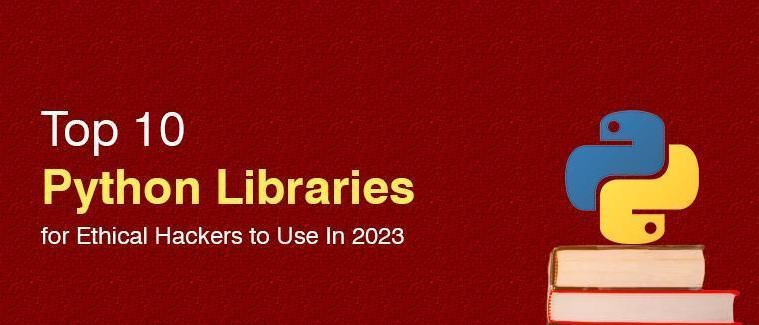Top 10 Python Libraries for Ethical Hacking: Enhancing Security Assessments and Vulnerability Testing
Python has become one of the most popular programming languages, not only for its versatility and simplicity but also for its extensive library ecosystem. Among the many applications of Python, it has found a significant role in the field of ethical hacking. In this blog post, we will explore the top 10 Python libraries that are commonly used by ethical hackers to conduct security assessments, penetration testing, and vulnerability scanning. These libraries provide powerful tools and functionalities that aid in identifying and addressing potential security vulnerabilities.
Scapy
Scapy is a powerful packet manipulation library that allows hackers to create, send, and capture network packets. It provides low-level access to network protocols, making it an essential tool for network reconnaissance, packet sniffing, and network mapping.
Requests
Requests is a widely used library for making HTTP requests in Python. It enables hackers to interact with web applications, send custom requests, and analyze responses. Requests is valuable for tasks such as web scraping, session management, and exploiting vulnerabilities related to HTTP.
Beautiful Soup
Beautiful Soup is a Python library used for web scraping and parsing HTML or XML documents. It simplifies the process of extracting data from websites, making it useful for hackers when gathering information, analyzing website structures, and identifying potential vulnerabilities.
Paramiko
Paramiko is a Python implementation of SSH (Secure Shell) protocol, providing a secure way to establish encrypted communication between devices. Ethical hackers often utilize Paramiko to automate SSH connections, perform remote command execution, and conduct security audits on SSH-enabled systems.
Scapy-SSL/TLS
Scapy-SSL/TLS is an extension to Scapy that adds support for SSL/TLS protocols. This library allows hackers to analyze and manipulate encrypted network traffic, including capturing and decrypting SSL/TLS packets. It is useful for security testing of SSL/TLS implementations and identifying vulnerabilities related to encryption.
PyCrypto
PyCrypto is a comprehensive library for cryptographic operations in Python. It provides various encryption algorithms, hash functions, and key management capabilities. Ethical hackers can utilize PyCrypto for tasks such as encrypting sensitive data, cracking weak encryption, and analyzing cryptographic vulnerabilities.
Unleashing the Power of Data: Web Scraping with Python Made Easy
Impacket
Impacket is a collection of Python classes for network protocols and packet manipulation. It enables hackers to interact with Windows-based systems, perform network attacks, and exploit vulnerabilities related to SMB (Server Message Block) and Active Directory. Impacket is a valuable tool for penetration testing in Windows environments.
Sqlmap
Sqlmap is a specialized Python tool designed for automated SQL injection and database penetration testing. It automates the process of detecting and exploiting SQL injection vulnerabilities in web applications. Ethical hackers use sqlmap to assess the security of databases and identify potential data leakage or manipulation risks.
TensorFlow
While not explicitly a hacking library, TensorFlow’s powerful machine learning capabilities have found applications in security. Ethical hackers leverage TensorFlow for tasks such as anomaly detection, intrusion detection, and malware analysis. It enables the development of intelligent security systems that can detect and respond to threats effectively.
OWASP ZAP
OWASP ZAP (Zed Attack Proxy) is an open-source web application security scanner. It is written in Java but provides a Python API for automation. Ethical hackers use OWASP ZAP to identify common web application vulnerabilities like cross-site scripting (XSS), SQL injection, and insecure direct object references.
Python’s rich library ecosystem empowers ethical hackers with a wide range of tools and functionalities to assess and secure computer systems and networks. The top 10 Python libraries mentioned in this blog post offer capabilities such as network packet manipulation, web scraping, cryptographic operations, exploitation of vulnerabilities, and automated security testing. However, it is essential to note that these libraries should be used responsibly and ethically, in adherence to legal and professional guidelines. By leveraging these libraries, ethical hackers can enhance their proficiency in security assessments and contribute to building robust and resilient systems in the digital landscape.













